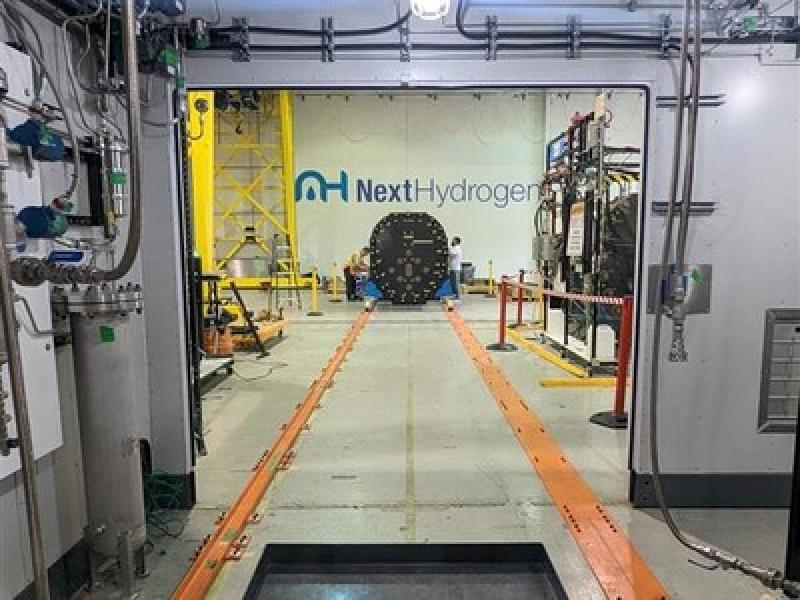
Next Hydrogen Solutions Inc. and Lugano, Switzerland-based Casale SA have signed a non-exclusive memorandum of understanding to integrate Next Hydrogen’s electrolyzer technology into green ammonia and methanol plants.
In the first phase of the project, the companies will work together on technology development, integration and validation testing of integrated green ammonia systems with an aim to accelerate the path to future market demonstration projects. The eventual goal is zero-emission ammonia and methanol production.
“We're targeting really high-quality partners to work with, so Casale is a leading OEM (original equipment manufacturer) in terms of ammonia equipment and plants. Similarly with methanol, that’s what they do,” Jim Hinatsu, Next Hydrogen’s chief product officer, told SustainableBiz.
“They are looking to adapt their products going forward in terms of being able to produce for use in green ammonia production (and) green methanol production. So a natural fit in terms of our product targeting large-scale green hydrogen production.”
Founded in 2007, Mississauga, Ont.-based Next Hydrogen (NXH-X) produces 40 megawatts of assembly capacity for its electrolyzers annually. The green hydrogen produced from those electrolyzers can be used as fuel for industries such as ammonia, steel and cement production, as well as transportation applications such as heavy mobility and off-highway fleets.
Next Hydrogen and Casale
Founded in 2021, Casale provides solutions for the production of fertilizers and other base chemicals including ammonia, urea, nitric acid, nitrates and phosphates, as well as melamine and methanol.
The companies had known each other for some time, Hinatsu explained. From there, the partnership naturally developed.
While the partnership is in its early days, the eventual goal is a commercial product integrated with Next Hydrogen’s latest electrolyzers.
“The end game is to have that integrated product offering, at least from the Next Hydrogen point of view,” he said. “Then how we get there is all that work in terms of the integration and development and design and then prove-outs along the way.”
Hinatsu said the companies hope to reach the market demonstration phase by late 2024 and into 2025, with a fuller commercialization to follow.
Next Hydrogen’s future plans
Next Hydrogen’s cell design architecture is supported by 39 patents.
“What we’re bringing to the marketplace is the first revolution in cell design architecture for alkaline electrolyzers since the 1950s, to my knowledge,” Raveel Afzaal, Next Hydrogen’s president and CEO told SustainableBiz in January 2022. The technology facilitates the usage of "less materials to produce the same amount of hydrogen as everyone else.”
The company is still on schedule to have market demonstrations with various integrations in 2024. That includes plans to upgrade its current line of electrolysis products from 2.25 megawatts to nine megawatts in early 2024.
Hinatsu explained the Casale partnership is part of the journey to that next-generation upgrade, calling it “one example of trying to execute that plan.”
“It makes sense for us to work with partners like Casale in the different market segments and understand in detail exactly what the requirements for our product are very early on. To be able to work closely in terms of developing our product for these specific market applications is very important for us,” he said. “Likewise, going back the other way, for partners to be able to understand our products and to adapt their products and integrate them with ours.”
The latter goal is being accomplished via a "blue-chip consortium" of strategic partners. In December 2022, the company received $5.1 million in funding from Sustainable Development Technology Canada to put toward the venture.
The company doesn’t have specific targets in terms of the reach of its partnerships, instead it aims to impact each of its target markets including transportation, oil and gas, steelmaking and others.
“The large industrial applications are certainly some of the most important ones for us and (we’re) really looking for strong market partnerships there,” Hinatsu said.










